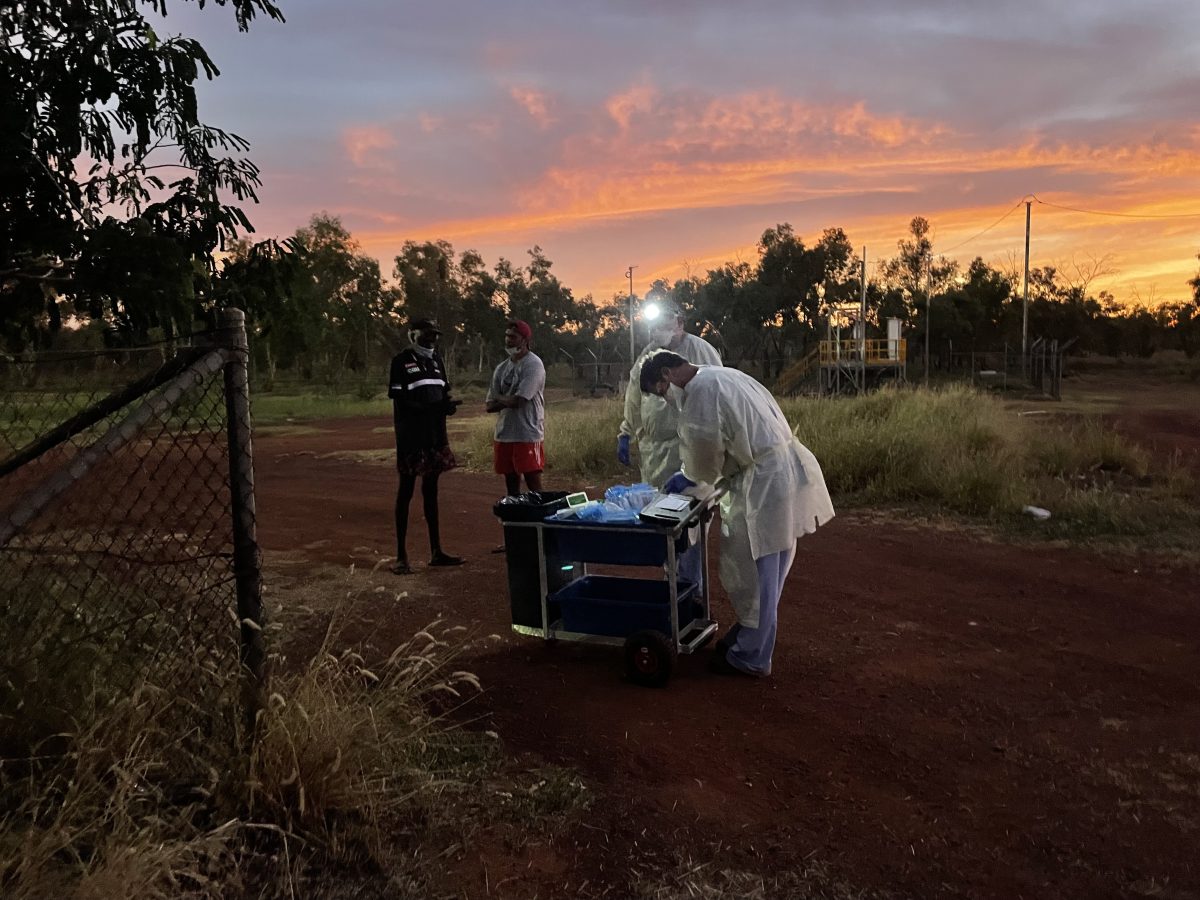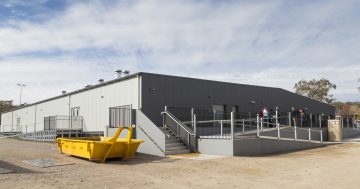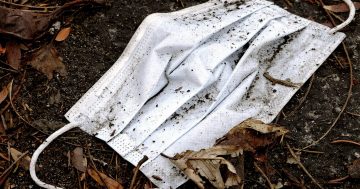
Dr Simon Quilty vaccinating a community of First Nations people during the early stages of the COVID-19 pandemic. Photo: Supplied.
Is the current media reporting about the increasing COVID cases leading into the festive season something to cause the average Australian any concern?
It’s true that the COVID of Christmas 2023 is not the same variant that wrecked Christmases past. Symptoms are milder, severe illness and death are less likely, and there’s a level of immunity across the population from either vaccination or infection. So why are doctors still worried?
In November, the president of the Australian Medical Association Queensland branch, Dr Maria Boulton, said: “Ask any healthcare worker, we’re all tired of COVID … the reality is it never went away, we’re on an eighth wave now. It doesn’t matter how complacent or tired of COVID we are, the numbers are increasing.”
Since before the pandemic, the Institute for Integrated Economic Research – Australia has been exploring the state of the Australian health system.
What we’ve been finding is not encouraging and reflects a steady weakening of our once enviable healthcare system. Not the least being a slow exodus of those who deliver our healthcare as a result of burnout, inadequate remuneration and workplace culture, to name a few triggers.
The latest COVID ‘wave’ has the potential to be more than a personal inconvenience or an unwelcome guest at Christmas lunch.
It could also place further pressure on an overworked and under-resourced healthcare system, including our hospitals.
Notwithstanding the reportedly ‘milder’ variants we are confronting, hospitalisation remains a genuine risk.
Minister for Health and Aged Care Mark Butler, as recently as 21 November, acknowledged one of the big challenges facing our healthcare system – the very real workforce shortage.
“We can’t kid ourselves: the global health workforce crunch is not going to be solved overnight … Which is why we are going to undertake a wide-ranging review to urgently investigate how to more equitably distribute doctors and other health workers across the country,” Mr Butler explained.
The question remaining for all of us then, is this: are we resilient enough to ride out another, albeit milder, COVID wave? Last month, we discussed our National Resilience Project, specifically our societal resilience.
We identified three key attributes of a resilient society: shared awareness and shared goals, teamwork and collaboration, and the ability to prepare and mobilise in the face of a crisis.
Unfortunately, the project highlighted our lack of resilience in all three areas.
We could apply these three resilience attributes to COVID-19 over the 2023/2024 holidays and, at the same time, perhaps alleviate some pressure on the healthcare system.
Shared awareness and shared goals: let’s acknowledge that COVID has not disappeared and will not in the foreseeable future.
It’s still making some people sick, and others are still dying. Let’s agree to talk about it. Let’s listen to the health professionals. Let’s agree we don’t want our family and friends getting unnecessarily sick.
Teamwork and collaboration: test if you’re feeling unwell, and report it if you get COVID.
Your GP could prescribe antivirals that could minimise the risk of hospitalisation. Tell your colleagues if you contract COVID-19 and don’t go to work – some things are best not shared.
Talk to your family honestly about the risks of exposure of your more vulnerable members – we all have older relatives who could end up in hospital. Wear a mask if you have symptoms. Encourage others to wear a mask without judgement or criticism – it’s for the greater good, after all.
Prepare and Mobilise: have a family plan for managing an outbreak at home. Get a booster. Be ready to change your holiday plans to protect others. Make sure you have your GP’s after-hours number to get a prescription for antivirals. Know which clinics/surgeries are open over Christmas. Make sure you know which pharmacies are operating over the holiday period.
These are simple, local and community-level actions that can help build resilience, but we can never be resilient at a national level without strong and brave leadership by our political class.
Pandemics are not going away. Are we ready for the next one?
A recent World Health Organisation and World Bank-sponsored report, A Fragile State of Preparedness: 2023 Report on the State of the World’s Preparedness, concluded that pandemic preparedness “remains perilously fragile”. The report brutally assessed that “the world stumbled into the COVID-19 pandemic unprepared, doing too little too late”.
Our report, Australia – A Complacent Nation: Our reactions are too little, too late, and too short-sighted highlighted Australia’s lack of resilience to future shocks, not just pandemics.
In our next article, we will look at some of these other aspects of resilience, what it means for us all, and what we can and should do.




















